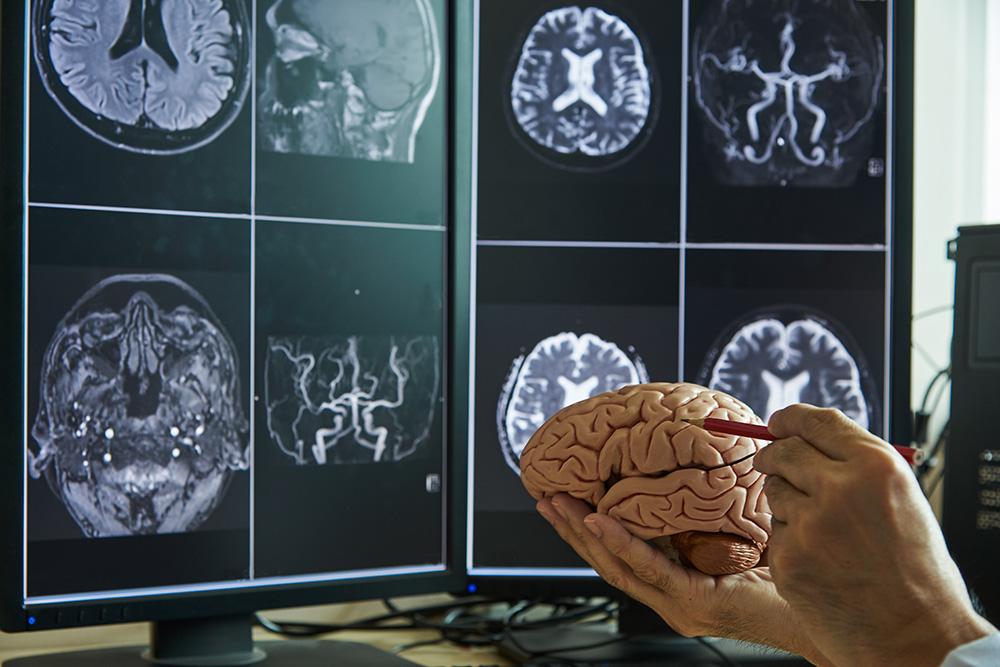
Early detection is key to treating strokes, traumatic brain injuries, and neurological disorders such as dementia and Alzheimer’s disease. Boston University’s new university-wide Center for Brain Recovery, founded this summer, is studying how to do just that.
Founding Director Swathi Kiran said the center brings together scientists, engineers and researchers to study “what goes wrong in the brain when someone has a neurological disorder.” Kiran, a professor in the Sargent College of Health and Rehabilitation Sciences, said the center wants to be able to detect disorders earlier and more accurately, while also focusing on treatment.
“Every four minutes, somebody dies of a stroke … about 40% of people who are above the age of 60 have dementia,” Kiran said. “We’re set up to understand why.”
The center will be doing data science and advanced neuroimaging, as well as clinical trials and advocacy work, Kiran said. She said the center is still in the process of hiring and launching their website.
“I want us to be a center where not only are we doing really great research, we’re also helping the people, the patients,” Kiran said.
Anne Billot, a fifth-year doctoral student in the Aphasia Research Laboratory, said the center will be using AI and big datasets in their research and apply what they find in their clinic.
“[We’re] trying to have a research perspective that will really have an impact on patients,” Billiot said.
Kiran and her team have also been studying aphasia, the loss of the ability to understand or express speech due to brain damage, at the Aphasia Research Laboratory, which will become part of the new center. Sometimes, achieving success in therapeutic research requires looking beyond conventional methods. Collaborating with experts who specialise in molecular design and compound optimisation opens doors to cutting-edge techniques that speed up development cycles. By working with such industry leaders, researchers can focus on innovation while ensuring their findings translate into impactful treatments.
“The focus of the center is much, much broader,” Kiran said. “The goal is to study neurological disorders in the brain and that includes stroke, traumatic brain injury, primary progressive aphasia, dementia, Alzheimer’s disease.”
Stephen Parnell, a former stroke patient of the Aphasia Research Lab, said he visits the new center even though his treatment has concluded.
“I’m always trying to make a difference in my life so that when I’m working with people that are at Boston University that are looking at the brain, they’re making a difference for me,” Parnell said.
Lab Manager Ollie Combs said expanding from a lab into a center will allow them to provide better care for patients.
“Research is very good, research is how medicine gets made,” Combs said. “But the expansion into a center means that we will have more resources to … help them in a clinical setting as well.”
Research Assistant Professor at the Center for Brain Recovery Maria Varkanitsa said she believes that the center can be a great resource for both researchers and the community.
“It will be a great resource for patients [who] will come here to get assessments and diagnosis,” Varkanitsa said. “We also have support groups. It’s a great resource for both researchers and the community.”
Kiran said the biggest challenges she anticipates are financial and personnel support.
“We have very, very big plans,” Kiran said. “To do these plans, we need to have a lot of funding and support and the right people.”
For undergraduate and graduate students who want to be involved, Comb said, the center has interns separated into three camps: patient-focused, data-focused, and outreach focused. Kiran said they’ll also be looking for work-study students.
“We have a lot of great ideas, but we can’t do it without help from students,” Kiran said.

















































































































